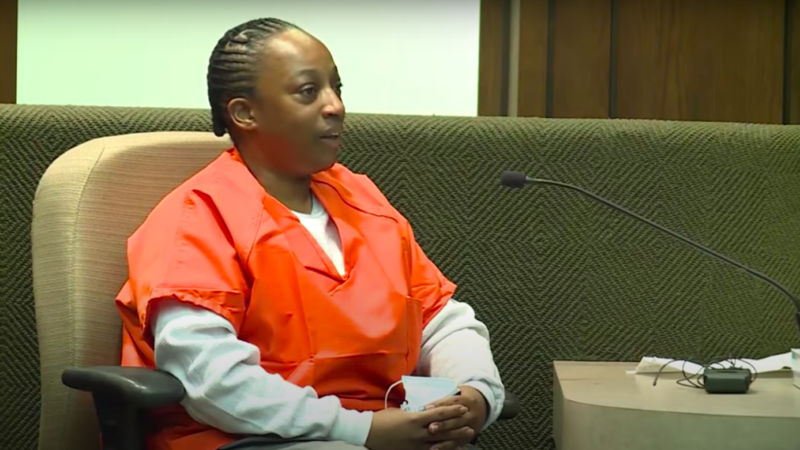
Emergency powers, threats to freeze the finances of peaceful protesters, and smearing critics as terrorists—it has to be China, right? But no, it’s our neighbor to the north, under a leader with a bad case of China-envy. For all the world to see, a panicky Prime Minister Justin Trudeau is throwing a tantrum over protests against restrictive pandemic policy that warns us how quickly an established democracy can lose its mind. It’s an advertisement for the value of cryptocurrency and other means of escaping the reach of the financial police state.
Part of Canada’s problem is that the country has rarely seen large numbers of people take to the streets in opposition to government actions. As a consequence, officials and some members of the public are wigging out over what would cause people elsewhere to shrug.
“By the standards of mass protests around the world, the ‘Freedom Convoy’ snarling Downtown Ottawa ranks as a nuisance,” The New York Times editorial board pointed out last week. “The number of protesters, about 8,000 at their peak, is modest; there have been no serious injuries or altercations, the truckers stopped blaring their horns after residents got a temporary court injunction against them.”
But that’s not how the country’s government sees it. After first going into hiding while issuing snarky communiques about the “unacceptable views” of Freedom Convoy protesters opposed to vaccine mandates and lockdowns, Trudeau invoked the Emergencies Act for the first time ever against those he not long ago characterized as a “small fringe minority.”
“The ongoing blockades and occupations are presenting serious challenges to law enforcement’s ability to effectively enforce the law,” Trudeau announced on February 14. “Because of that, the federal government is invoking the Emergencies Act to supplement provincial and territorial capacity.”
Successor to the War Measures Act invoked by the current prime minister’s father in 1970 against actual terrorists, the Emergencies Act lets the government compel people to render services to the state and regulate public assembly with stiff fines and prison time for noncompliance. A public inquiry is required within 60 days, but Parliament is effectively bypassed. CTV News understandably asked Justice Minister David Lametti why lawmakers were given no say.
Lametti: Yes, legislation is always an option, but how long does legislation take? Particularly in the House where the main opposition party, their main goal is just to frustrate any piece of government legislation of whatever type and in which many people in the opposition actually support—
CTV News: But look, sir. To be fair, frustration with the democratic process in a minority government is not necessarily a justification to use the Emergencies Act. It has to be a crisis. It’s not the frustration of a minority government. I mean, that’s not on the table.
Lametti: We believe, as I have said, that this is a crisis that needs special attention, that there were normative gaps—this is one of them. And in order to attack the foreign funding problem of this occupation, the Emergencies Act allows us to make the declaration immediately and then put the parliamentary scrutiny afterwards.
The Canadian Civil Liberties Association argues that “the federal government has not met the threshold necessary to invoke the Emergencies Act. This law creates a high and clear standard for good reason: the Act allows government to bypass ordinary democratic processes. This standard has not been met.” It adds that “emergency legislation should not be normalized. It threatens our democracy and our civil liberties.”
But, as Lametti implied, going after funding is central to the Canadian government’s motivation.
“This is about following the money,” Deputy Prime Minister Chrystia Freeland specified. “This is about stopping the financing of these illegal blockades. We are today serving notice: if your truck is being used in these protests, your corporate accounts will be frozen.”
The specifics of the government order “require any financial service provider to determine whether they have in their possession or control property that belongs to a person who participates in the” protests. Bloomberg reports that financial institutions suspecting they serve demonstrators “must freeze their accounts and report it to the Royal Canadian Mounted Police or Canada’s intelligence service.” The Canadian government acted after supporters in Canada, the United States, and elsewhere sent money to protesters through crowdfunding platforms and via cryptocurrencies such as bitcoin to keep them going. Interestingly, officials are openly frustrated that crypto evades the control they exercise over banks and payment platforms, but it’s not obvious that there’s much they can do.
“What I see is the biggest gap in crypto is self-custody, pure peer-to-peer. Because how would you get reporting on that?” Ryan Clements, chair in business law and regulation at the University of Calgary, told the National Post. “You would effectively need to regulate Bitcoin to be able to do that.”
“The whole purpose originally, of Bitcoin and analogues to Bitcoin was to dis-intermediate. And Fintrac [Canada’s financial intelligence agency] rules apply to intermediaries,” he added. “What happens when there are no intermediaries? It is literally the equivalent of handing cash.”
“Bitcoin’s fundamental value proposition is seizure resistance,” entrepreneur and venture capitalist Balaji Srinivasan succinctly observed. “As important in Canada as it is in Venezuela.”
Srinivasan’s comparison of Canada to totalitarian Venezuela may be more apt than Canadians like. Trudeau got into trouble in 2013 for praising the ability of China’s “basic dictatorship” to act quickly, as he now can under the Emergencies Act. He may have inherited the sentiment from his father, Pierre Trudeau, who not only invoked the War Measures Act, but openly admired thugs such as Fidel Castro.
“We see evidence of the Trudeau family’s long love affair with the world’s autocrats and tyrants,” Mark Mike noted in a 2018 Maclean’s magazine piece.
This is hardly a unique sentiment among politicians in democracies; America’s last president had a soft spot for rulers of open-air prison camps. People everywhere should take such hints at face value as warnings that the creatures they elect have little patience for the process that puts them in office.
That doesn’t mean Canada is likely to slide into explicit authoritarianism anytime soon. The Freedom Convoy evidences a taste for liberty, and even the many Canadians unhappy with the protest are unlikely to easily surrender elections and the right to criticize officialdom. But the current government’s excesses suggest that a liberal society is a fragile thing. Those hoping to exercise their liberty in the years to come might want to get more comfortable with keeping assets beyond the state’s reach and using cash, crypto, and other means of exchange that officials can’t control.
The post Canada's Panicked Government Engages in Undemocratic Theft appeared first on Reason.com.
from Latest https://ift.tt/gJlMp4i
via IFTTT





